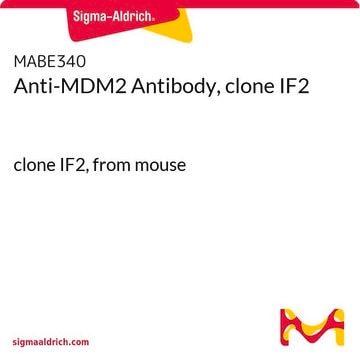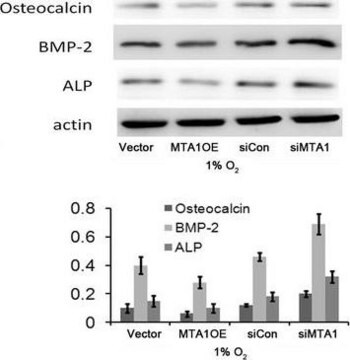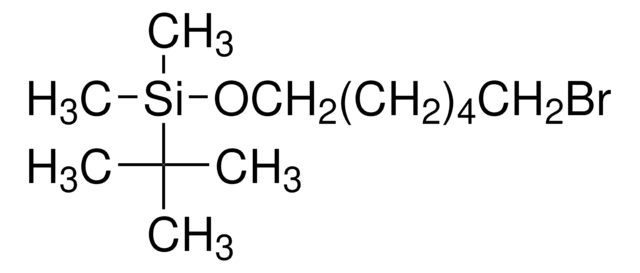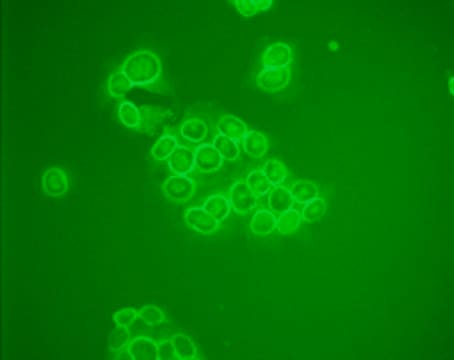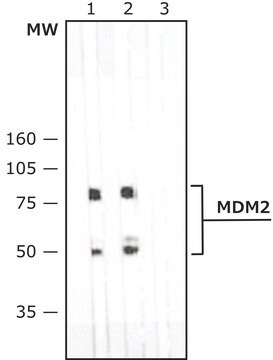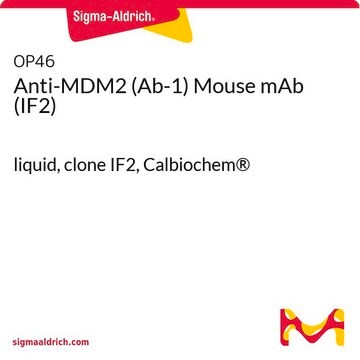推薦產品
生物源
mouse
品質等級
抗體表格
culture supernatant
抗體產品種類
primary antibodies
無性繁殖
2A10, monoclonal
物種活性
human
技術
immunoprecipitation (IP): suitable
western blot: suitable
同型
IgG2aκ
NCBI登錄號
UniProt登錄號
運輸包裝
wet ice
目標翻譯後修改
unmodified
基因資訊
human ... MDM2(4193)
一般說明
MDM2 is an E3 ubiquitin ligase that is most widely studied for its role in regulating the p53 tumor suppressor. MDM2 antagonizes the transcriptional activity of p53 in two main ways. The N-terminal of MDM2 interacts and disables the transactivation domain of p53. In addition, the C-terminal E3 ligase region of MDM2 can attach monoubiquitin to p53 resulting in the transport of p53 from the nucleus to the cytoplasm, thereby preventing the interaction of p53 with target DNA sequences. In addition, MDM2 may also attach polyubiquitin chains to p53, resulting in the degradation of p53 by the proteosome. MDM2 may produce these effects in cooperation with the Mdmx protein. Overall, MDM2 inhibits the ability of p53 to induce cell cycle arrest or apoptosis, and may contribute to oncogenesis.
應用
Anti-MDM2 Antibody, clone 2A10 is a Mouse Monoclonal Antibody for detection of MDM2 also known as E3 ubiquitin-protein ligase Mdm2 or Hdm2 & has been validated in WB & IP.
Immunoprecipitation Analysis: A representative lot was used by an independent laboratory in human lymphoblastoid cell line (NL553) treated with NCS. (Khosravi, R., et al. (1999). PNAS. 96(26):14973–14977.)
品質
Evaluated by Western Blot in A-549 cell lysate.
Western Blot Analysis: 0.5 µg/mL of this antibody detected MDM2 on 10 µg of A-549 cell lysate.
Western Blot Analysis: 0.5 µg/mL of this antibody detected MDM2 on 10 µg of A-549 cell lysate.
標靶描述
~90 kDa observed. The calculated molecular weight is 55 kDa, however MDM2 has been shown as a ~90 kDa band in western blots (Erhardt, P., et al. (1997). The Journal of Biological Chemistry. 272:15049-15052.). Uniprot describes many isoforms between 12-56 kDa, which can be highly phosphorylated and ubiquitinated.
外觀
Format: Purified
Purified mouse monoclonal IgG2aκ cultured supernatant in buffer containing 0.1 M Tris-Glycine (pH 7.4), 150 mM NaCl with 0.05% sodium azide.
分析報告
Control
A-549 cell lysate
A-549 cell lysate
其他說明
Concentration: Please refer to the Certificate of Analysis for the lot-specific concentration.
Not finding the right product?
Try our 產品選擇工具.
儲存類別代碼
12 - Non Combustible Liquids
水污染物質分類(WGK)
WGK 1
閃點(°F)
Not applicable
閃點(°C)
Not applicable
分析證明 (COA)
輸入產品批次/批號來搜索 分析證明 (COA)。在產品’s標籤上找到批次和批號,寫有 ‘Lot’或‘Batch’.。
Susie Lee et al.
PloS one, 5(6), e10995-e10995 (2010-06-12)
Cell proliferation in all rapidly renewing mammalian tissues follows a circadian rhythm that is often disrupted in advanced-stage tumors. Epidemiologic studies have revealed a clear link between disruption of circadian rhythms and cancer development in humans. Mice lacking the circadian
Jong-Hee Lee et al.
The Journal of biological chemistry, 283(28), 19826-19835 (2008-05-21)
The p53 tumor suppressor protein, a critical modulator of cellular stress responses, is activated through diverse mechanisms that result in its stabilization and transcriptional activation. p53 activity is controlled by transcriptional, translational, and post-translational regulation. The major mechanisms of p53
Oliver Bischof et al.
Molecular cell, 22(6), 783-794 (2006-06-24)
Cellular senescence and apoptosis have evolved to restrain unwarranted proliferation of potentially tumorigenic cells. Here we show that overexpression of the E3 SUMO ligase PIASy in normal human fibroblasts recruits the p53 and Rb tumor suppressor pathways to provoke a
Kyle P Feeley et al.
Cancer research, 77(14), 3823-3833 (2017-06-04)
p53 deletion prevents the embryonic lethality of normal tissues lacking Mdm2, suggesting that cells can survive without Mdm2 if p53 is also absent. Here we report evidence challenging this view, with implications for therapeutically targeting Mdm2. Deletion of Mdm2 in
Shunbin Xiong et al.
Cancer research, 70(18), 7148-7154 (2010-08-26)
High levels of the critical p53 inhibitor Mdm4 is common in tumors that retain a wild-type p53 allele, suggesting that Mdm4 overexpression is an important mechanism for p53 inactivation during tumorigenesis. To test this hypothesis in vivo, we generated transgenic
我們的科學家團隊在所有研究領域都有豐富的經驗,包括生命科學、材料科學、化學合成、色譜、分析等.
聯絡技術服務